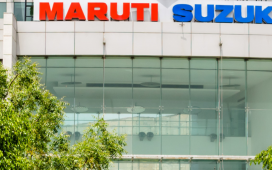Stay informed with free updates
Simply sign up to the Asia-Pacific companies myFT Digest — delivered directly to your inbox.
Sales of luxury cars in South Korea have plunged after the government introduced rules requiring company cars worth more than $58,000 to carry a neon green licence plate in a bid to stop tax evasion.
President Yoon Suk Yeol made an election pledge two years ago to crack down on private use of company owned luxury cars. The bright green plates were designed to clearly identify company cars to the public and deter people from using them privately.
More than 70 per cent of top-end models from automakers such as Bentley, Lamborghini and Rolls-Royce that were purchased in Korea last year were under corporate accounts, according to industry data from the Korea Automobile Importers & Distributors Association.
But since the green licence plates were introduced in January, the number of foreign luxury vehicles priced at more than Won80mn ($58,000) that were registered as company cars has fallen by 27 per cent, according to KAIDA.
“Korea is a key market for luxury-car makers. The new rule is causing a headache for them as there is no effective way to revive sales here,” said Lee Hang-koo at the Jeonbuk Institute of Automotive Convergence Technology, a South Korean research group.
Lee said he expected luxury car sales to slow further because the green plates would attract negative attention. “People will frown at the sight of supercars with green plates in entertainment or shopping districts or golf resorts,” he said.
South Korea has become one of the most important markets for European carmakers, ranking among the top three Asia markets for global luxury brands with about 34,000 cars priced at more than Won150mn ($108,000) sold last year, according to KAIDA and industry estimates.
But officials had expressed concerns that company vehicle purchases and maintenance costs were being deducted from corporate operating profits as expenses, reducing their tax exposure.
“We consulted the public, experts and the industry. They raised the issues of personal use and tax evasion of corporate vehicles so the new licence has been adopted to address these problems,” said Korea’s Ministry of Land, Infrastructure and Transport in November.
Sales of Bentley vehicles in Korea dropped 77 per cent year on year in the January-March period to 38 units, while those of Rolls-Royce and Porsche dropped 35 per cent and 23 per cent respectively, according to KAIDA.
Lamborghini, 90 per cent whose Korea sales last year were as company vehicles, recorded a 22 per cent fall in the first quarter from a year earlier.
Dealers said the new rule has come at a time when the country’s slowing economy was already taking a toll on luxury-car makers.
“Orders are falling sharply this year after many of our customers advanced their purchases last year before the new rule came into effect,” said a Porsche dealer in the upmarket Gangnam district in Seoul.
“They prefer to buy cars under corporate accounts,” he added. “We are offering some discounts and promotions for some models but things are not getting better with the economy also in bad shape.”





